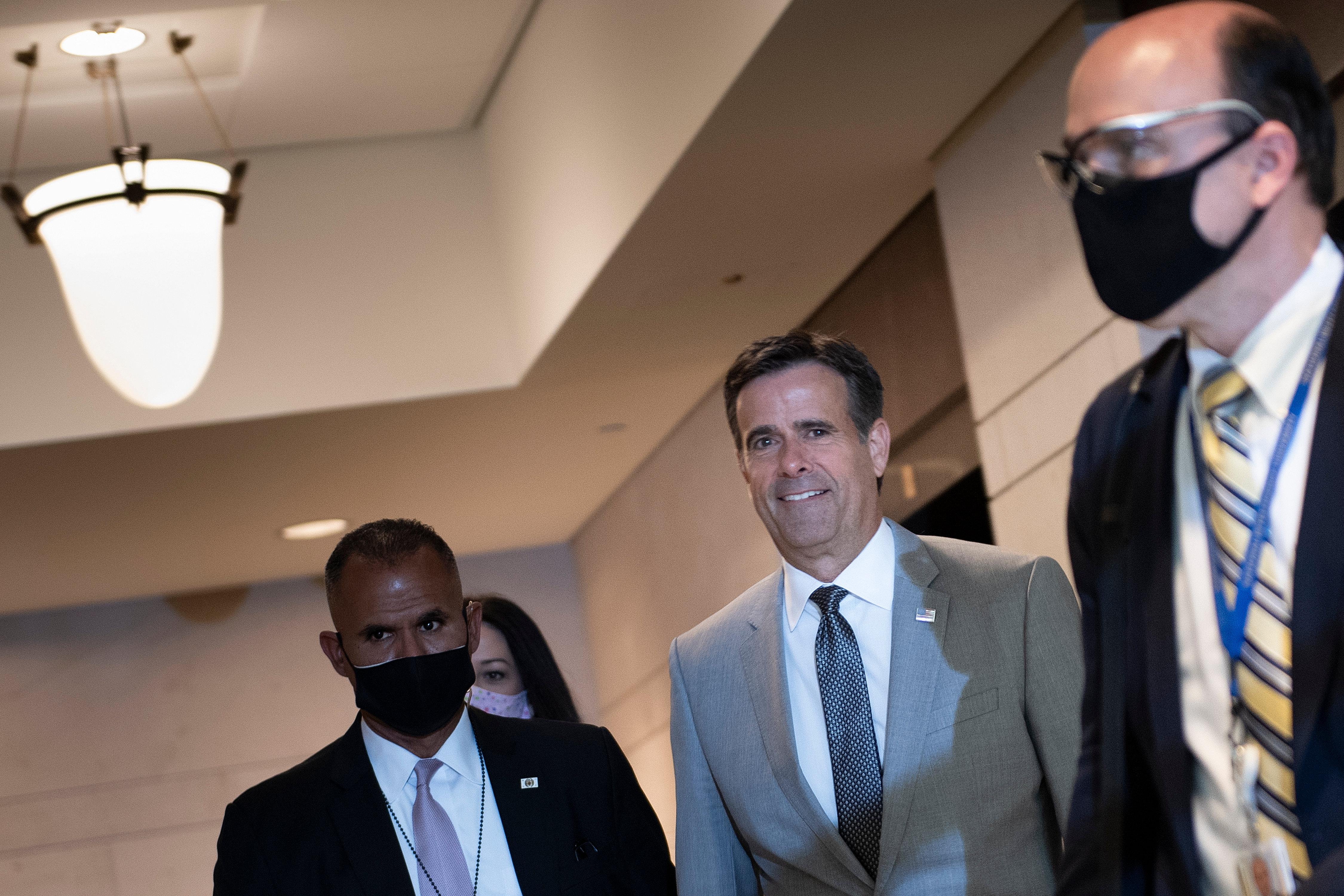Even by Trump standards, Wednesday night’s hastily assembled news conference, at which officials accused Iran of trying to harm the president’s reelection chances, ranks as a highly bizarre and baffling spectacle.
The claim—made by Trump’s national intelligence director, John Ratcliffe, while FBI Director Christopher Wray stood by looking uncomfortable—was that Iran, hacking into the email servers of the Proud Boys right-wing militia group, sent letters to voters in at least three battleground states, informing them that the group had access to their registration records and warning them, “You will vote for Trump on Election Day, or we will come after you.”
If this was an attempt by the Iranians to influence our election, it reveals above all that they’re not very good at this. Many commentators couldn’t figure out whether the emails were intended to help Trump or hurt him. Was the letter meant to scare Americans into voting for Trump—or to anger them into defiantly voting for Joe Biden? Any propagandistic letter that can be read in such contradictory ways is very poor propaganda. Either way, even if Ratcliffe and Wray hadn’t stepped in to expose it as a fraud, the letter would almost certainly have had no effect. The letter’s language is so stiff, the message so tone-deaf, it’s as if Borat were running Iran’s information-warfare unit.
“This really left me shaking my head,” a former senior official with the National Security Agency said of the press conference. The intelligence community “has a ton of information” on foreign interference in elections. “The example they gave was pretty silly … ridiculous.” The Iranian operation, besides being clumsy, wasn’t even a big deal: Voter registration records are public documents, readily available; it takes no master hacker to obtain them.
Why then did Ratcliffe hold this hastily called and absurdly overdramatized press conference? His purpose seems to have been blatantly partisan: to help Trump win the election by saying that Iran, which is commonly viewed as a hostile actor, wants him to lose.
“The only thing I can guess,” Richard Clarke, former White House cybersecurity director under Presidents Bill Clinton and George W. Bush, told me, “is that Trump was told about some Iranian activity and demanded a presser to get out the story, so he can say that he’s also being attacked by foreign election interference.” Ratcliffe tellingly neglected to mention that, as Clarke put it, “whatever Iran is doing, it’s minuscule compared to Russian interference” to help Trump.
Another former senior official with the National Security Agency agrees. “The interesting bit here is the conflation of attribution and motivation,” he said of the press conference. “Having reasonably definitive evidence that it was the Iranians is one thing. Divining motive (in this case, ‘to hurt Trump’) is an entirely different matter. I suspect the latter—advancing a political objective—is driving the breathlessness of the rollout.”
The “political objective,” of course, is to help Trump. Ratcliffe, a former Republican congressman who avidly carried water for the president during the impeachment hearings, has been widely denounced, not just by Democrats but also by several intelligence officials, for politicizing intelligence ever since taking the director’s job in May.
Chuck Schumer, the Senate’s top Democrat, told MSNBC Wednesday night that Ratcliffe’s spin was very different from the classified intelligence briefing that he’d earlier received about the spoofed email. The briefing stated that the emails were intended not so much to help one candidate or the other, but rather “to undermine confidence in [U.S.] elections.”
The email’s language bolsters this conclusion. We are “in possession of all your information,” the Iranian authors, pretending to be the Proud Boys, warn the letter’s recipients, before instructing them to change their party registration and vote for Trump. If voters believed a group like Proud Boys—a right-wing militia group whose members tend to support Trump and believe that Trump supports them—can gain access to voting records, and even know whom they voted for, they might just dismiss the whole process as corrupt and not vote at all.
Wray, who has behaved independently in his term as FBI director (so much so that Trump has threatened to fire him after the election for not prosecuting his political foes), should be credited for making a larger point. “We are not going to tolerate foreign interference in our elections or any criminal activity that threatens the sanctity of your vote or undermines public confidence in the outcome of the election,” he said in one of the rare moments when he spoke at all at the press conference. “When we see indications of foreign interference or federal election crimes, we’re going to aggressively investigate and work with our partners to quickly take appropriate action.”
Good to know. It would be better if we knew that the national intelligence director is going after Russian efforts to tilt the election as well.

